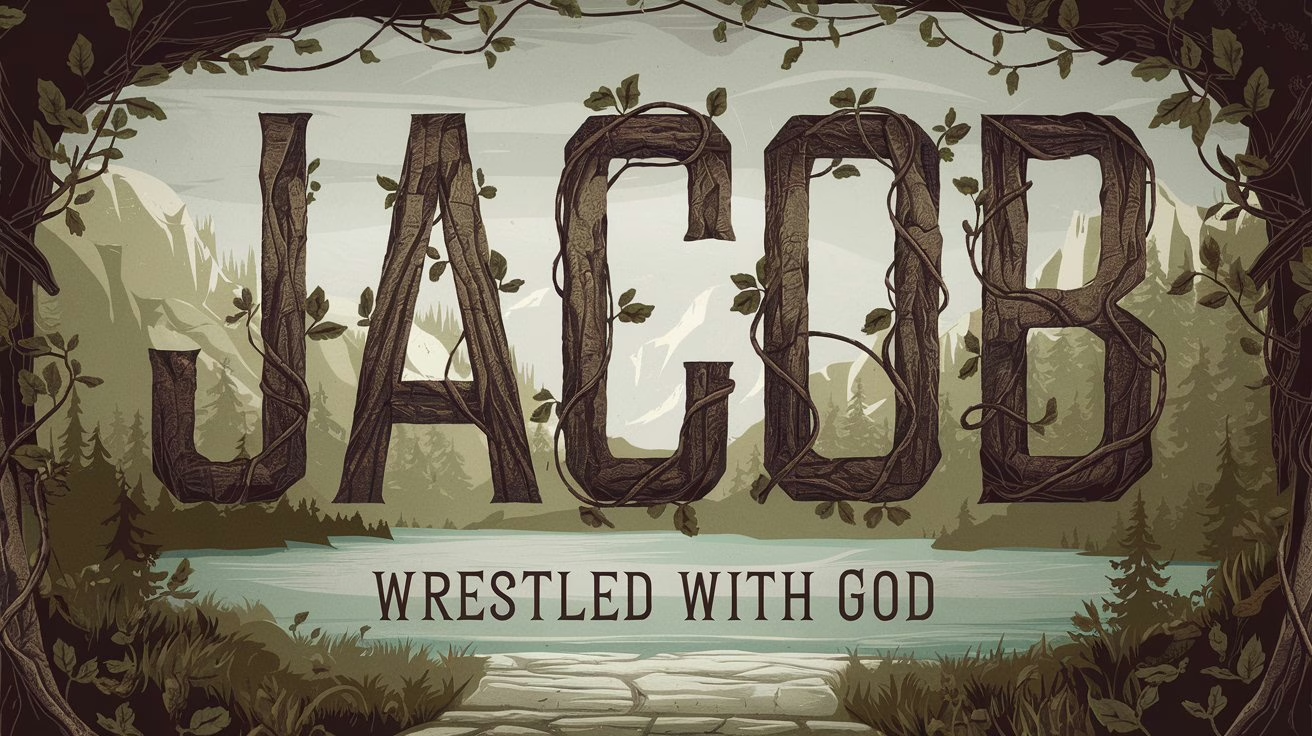Jacob, one of the most complex characters in the Bible, is a man whose life is filled with deception, struggle, transformation, and blessing. He is the bridge between the patriarchs—Abraham and Isaac—and the establishment of the twelve tribes of Israel. His life narrative is both a personal journey of faith and a prophetic symbol for the entire nation of Israel. In understanding Jacob’s life, we gain insight into God’s covenant, His redemptive plan, and His dealings with the people of Israel throughout Scripture, from Genesis to Revelation.
Jacob’s Birth and the Struggle for Supremacy
Jacob’s life began with a prophecy even before he was born. Rebekah, his mother, experienced a difficult pregnancy, and when she inquired of the Lord, she received a divine revelation about her twins:
Genesis 25:23 (NKJV): “And the Lord said to her: ‘Two nations are in your womb, two peoples shall be separated from your body; one people shall be stronger than the other, and the older shall serve the younger.’”
Jacob’s struggle with his twin brother Esau started in the womb and continued throughout their early lives. The prophecy indicated that Jacob, the younger, would surpass Esau, reversing the cultural norm of the firstborn’s supremacy. This theme of reversal—where God chooses the unlikely or the younger—recurs throughout Scripture.
Jacob the Deceiver: Birthright and Blessing
Jacob’s name means “supplanter” or “heel-grabber,” reflecting his nature early on. He was born grasping Esau’s heel, symbolizing his future actions of grasping for what was not his by natural right.
- The Birthright:
- The birthright was a significant inheritance that included leadership of the family and a double portion of the estate. Esau, the firstborn, despised his birthright and sold it to Jacob for a simple meal.
- Genesis 25:31-34 (NKJV): “But Jacob said, ‘Sell me your birthright as of this day.’ And Esau said, ‘Look, I am about to die; so what is this birthright to me?’ Then Jacob said, ‘Swear to me as of this day.’ So he swore to him, and sold his birthright to Jacob.”
- The Blessing:
- Jacob, with the help of his mother Rebekah, deceived his father Isaac to receive the blessing intended for Esau. Disguising himself as his brother, Jacob tricked Isaac, who was old and nearly blind.
- Genesis 27:28-29 (NKJV): “Therefore may God give you of the dew of heaven, of the fatness of the earth, and plenty of grain and wine. Let peoples serve you, and nations bow down to you. Be master over your brethren, and let your mother’s sons bow down to you.”
This deception set off a chain of events that would shape Jacob’s life, forcing him to flee to his uncle Laban’s house and beginning a long journey of personal transformation.
Jacob’s Encounter with God: The Ladder from Heaven
On his way to Haran, Jacob had a profound encounter with God. He dreamed of a ladder reaching to heaven, with angels ascending and descending on it, and the Lord standing above it.
Genesis 28:13-15 (NKJV): “And behold, the Lord stood above it and said: ‘I am the Lord God of Abraham your father and the God of Isaac; the land on which you lie I will give to you and your descendants.’”
In this vision, God reaffirmed His covenant with Jacob, promising him land, descendants, and blessings. Jacob named the place Bethel, meaning “House of God,” marking it as a sacred spot where he encountered the divine.
Jacob’s Time with Laban: A Season of Deception and Growth
Jacob’s life with his uncle Laban was marked by hard labor, family strife, and God’s provision. He fell in love with Rachel, Laban’s daughter, and agreed to work seven years to marry her. However, Laban deceived Jacob, giving him Leah instead. Jacob worked another seven years for Rachel, and his family expanded through Leah, Rachel, and their maidservants, Bilhah and Zilpah.
Genesis 29:25 (NKJV): “So it came to pass in the morning, that behold, it was Leah. And he said to Laban, ‘What is this you have done to me? Was it not for Rachel that I served you? Why then have you deceived me?’”
Jacob’s time with Laban was a period of personal growth. He experienced what it felt like to be deceived, mirroring his earlier actions toward Esau and Isaac.
Jacob’s Transformation: Wrestling with God
One of the most significant events in Jacob’s life was his encounter with God at the river Jabbok. As he prepared to meet Esau, fearing his brother’s wrath, Jacob spent the night wrestling with God.
Genesis 32:24-28 (NKJV): “Then Jacob was left alone; and a Man wrestled with him until the breaking of day. Now when He saw that He did not prevail against him, He touched the socket of his hip; and the socket of Jacob’s hip was out of joint as He wrestled with him. And He said, ‘Your name shall no longer be called Jacob, but Israel; for you have struggled with God and with men, and have prevailed.’”
Jacob’s new name, Israel, means “he who struggles with God.” This name change marked his transformation from a deceiver to a man who had encountered God and was changed forever. It also established the name that would be carried by his descendants—the nation of Israel.
Jacob’s Prophetic Legacy: The Time of Jacob’s Trouble
Jacob’s life has prophetic significance beyond his personal story. In the prophetic books, the name Jacob often symbolizes the entire nation of Israel, particularly in times of distress and divine discipline.
- The Time of Jacob’s Trouble:
- The phrase “the time of Jacob’s trouble” appears in Jeremiah 30:7, referring to a future period of great tribulation for Israel.
- Jeremiah 30:7 (NKJV): “Alas! For that day is great, so that none is like it; and it is the time of Jacob’s trouble, but he shall be saved out of it.”
This prophecy is often linked to the Great Tribulation described in the book of Revelation (Revelation 6-19). It speaks of a period of intense suffering for Israel, yet it also promises deliverance and restoration, reflecting God’s covenant faithfulness.
- The Restoration of Israel:
- Despite the trials, God’s promise to Jacob remains firm. In the end times, Israel will be purified, restored, and brought back into a right relationship with God.
- Zechariah 12:10 (NKJV): “And I will pour on the house of David and on the inhabitants of Jerusalem the Spirit of grace and supplication; then they will look on Me whom they pierced.”
In the book of Revelation, the 144,000 sealed servants from the twelve tribes of Israel (Revelation 7:4-8) are a direct fulfillment of the promises made to Jacob’s descendants.
Jacob’s Prophetic Blessings to His Sons
In Genesis 49, Jacob gave prophetic blessings to his twelve sons, each foretelling the destiny of the tribes of Israel. These blessings have both historical and future implications, setting the stage for the role of each tribe in Israel’s history and God’s redemptive plan.
- Judah: Foretold to be the tribe of kings and the lineage of the Messiah.
Genesis 49:10 (NKJV): “The scepter shall not depart from Judah, nor a lawgiver from between his feet, until Shiloh comes.”
- Joseph: Blessed with abundance and protection, symbolizing God’s provision even in times of trouble.
My Final Thoughts
Jacob’s life was marked by struggle, transformation, and blessing. He began as a deceiver, striving to obtain the promises of God through his own efforts. Yet through his encounters with God, he was transformed into Israel, the patriarch of a chosen nation. His life is a powerful testimony of God’s grace, the importance of perseverance, and the sovereign plan of God that extends from the pages of Genesis to the prophetic visions of Revelation.
Jacob’s legacy is not just a personal one; it is a national and prophetic symbol. The name Israel, given to him by God, represents the people of God who, like Jacob, struggle, wrestle, and are ultimately transformed by divine encounters. Through trials and tribulations, the nation of Israel will one day be restored, fulfilling the promises made to Jacob so long ago.




